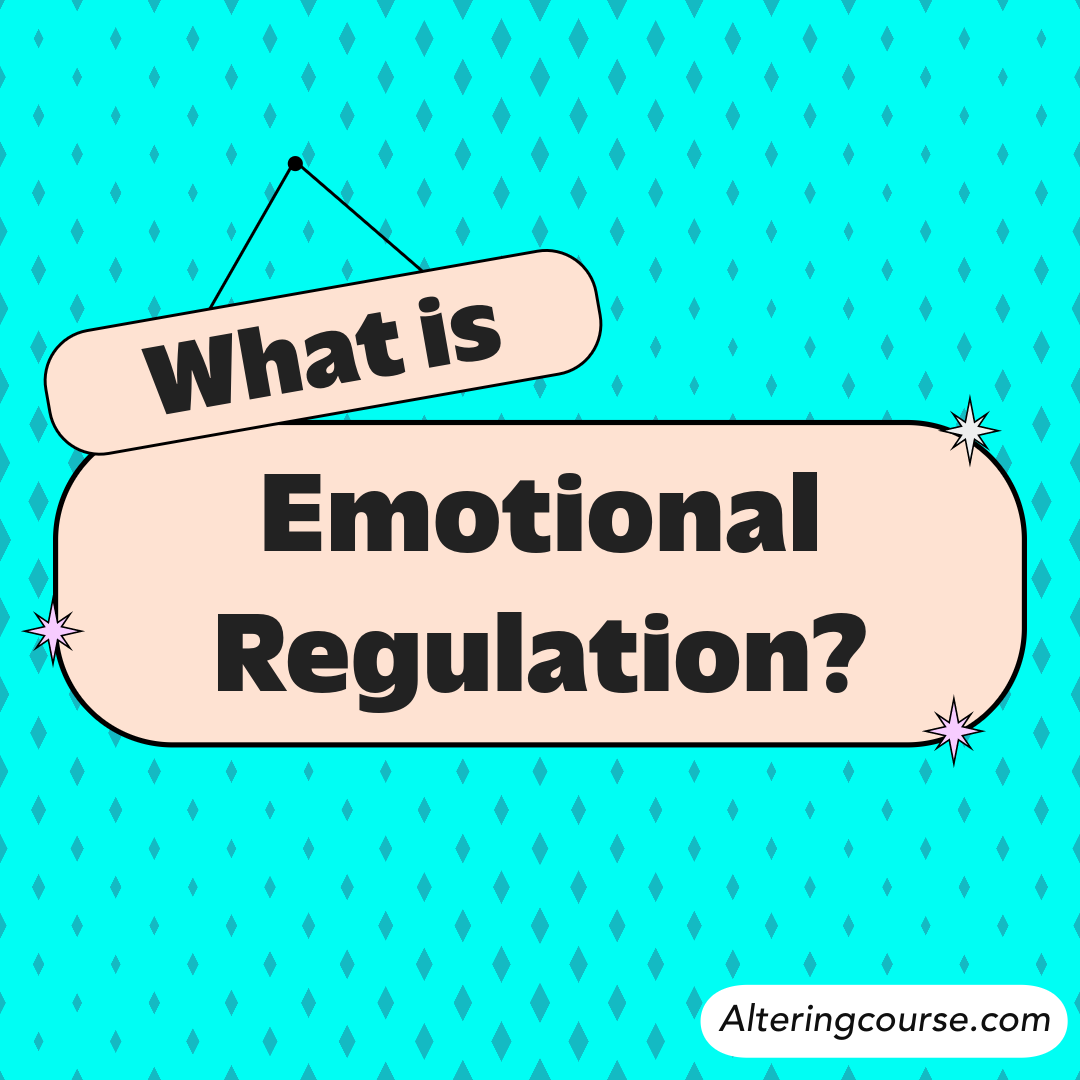What is Emotional Regulation?
Does this sound familiar?
Your seemingly has-it-all-together kid gets home after a long day of school and extracurriculars. They face their mountain of homework, resume-building (college prep and/or career), and social obligations.
They break down.
They can’t cope with it all, they freeze, they lash out, or they might even quit.
As a community college professor and an executive function coach, I see this all the time.
In part, it’s due to a lag in their executive function skills. Executive function is the set of mental processes that help us get things done. It includes working memory (skills like time management and task follow-through), mental flexibility (skills like organizing and goal setting), and emotional regulation (which involves the process of understanding and monitoring your own emotions and behaviors).
What is emotional regulation and dysregulation?
“I’m overwhelmed.”
That’s a typical response from students when you ask how they are or what they are feeling.
But it’s not a feeling. It’s an umbrella term for feeling inundated, stressed, or unable to effectively manage the demands and challenges they face. Saying “overwhelmed” instead of identifying a specific feeling is a barrier to maintaining emotional well-being.
Emotional regulation includes self-control, resisting harmful impulses, and prioritizing tasks. It’s the ability to deal with difficult situations and modulate their emotional experiences.
It starts with emotional awareness. Identifying a very specific feeling can be incredibly difficult when the brain is overwhelmed. But that awareness is key to executive functioning.
Emotional regulation is not the lack of emotion. It’s knowing how you feel, expressing it in a productive way, assessing a situation, and being able to move forward with a plan.
Emotional regulation is the part of executive function where young adults have the most gaps. And if a student has trouble identifying and regulating their emotions, they will struggle to manage stress. They might have difficulty in social settings/relationships due to emotional dysregulation. And their schoolwork can suffer, particularly in follow-through and accuracy, if the brain is flooded with emotions they feel they can’t control.
What can you do to help?
Make sure you have warm and open communication. Your child might not be ready to be open with you, but creating an environment that allows them to is really important. Try something like, “I can see you’ve had a tough day. It’s okay to feel frustrated. Do you want to talk about it or do you need some time to process on your own?”
As another example, if you find out your child’s grades have dipped quite a bit, don’t react negatively right away. Try saying something like, “I notice that you are struggling in this class. Is everything okay?” This gives them the opportunity to communicate any emotional issues and promotes connection. Help them identify their feelings if they are unable to. From there, you can offer your support. Ask them for some ideas about how to improve the situation and help them make a plan for moving forward.
In this scenario, you’ve acted as a guide in their emotional regulation, but you haven’t done it for them. You’re helping to build emotional skills. You haven’t taken away consequences; you’ve helped them change behaviors, ask for help, and take responsibility.
Acknowledge their emotional regulation on a micro-level. Your teen might roll their eyes if you high-five them for identifying a specific feeling. But try praising them when you notice small wins. For example, “I appreciate that you took out the trash before calling your friend.” You’ve just acknowledged their positive prioritization. Or, “I’m proud of you for leaving the party before things got out of hand.” You’ve celebrated them resisting a harmful impulse. Positive reinforcement of behavior goes further in actually changing it than punishment does!
Professional help might be a necessary (and good!) option for you and/or your teen. If you suspect any sort of learning or neurological disorder, get your child tested with a medical professional. A diagnosis and proper treatment can be life-changing. A licensed professional therapist can help individuals deal with trauma that might be creating deficits in emotional regulation. For less severe cases, an executive function coach like myself can help your child develop systems for prioritizing tasks, navigate complicated social situations in school, and practice self-care that leads to growth in executive function skills like emotional regulation.
And, of course, modeling emotional regulation is really important. Take inventory of how you prioritize tasks, handle disappointment, and react when things don’t go as planned. We are all a work in progress! Give yourself some grace then choose a few areas to work on for yourself.
Emotional regulation is a skill that can be fostered and improved. It’s not about suppressing emotions but rather about understanding, acknowledging, and managing them in healthy ways. If regulated, emotions can be tools for personal growth and positive change.





